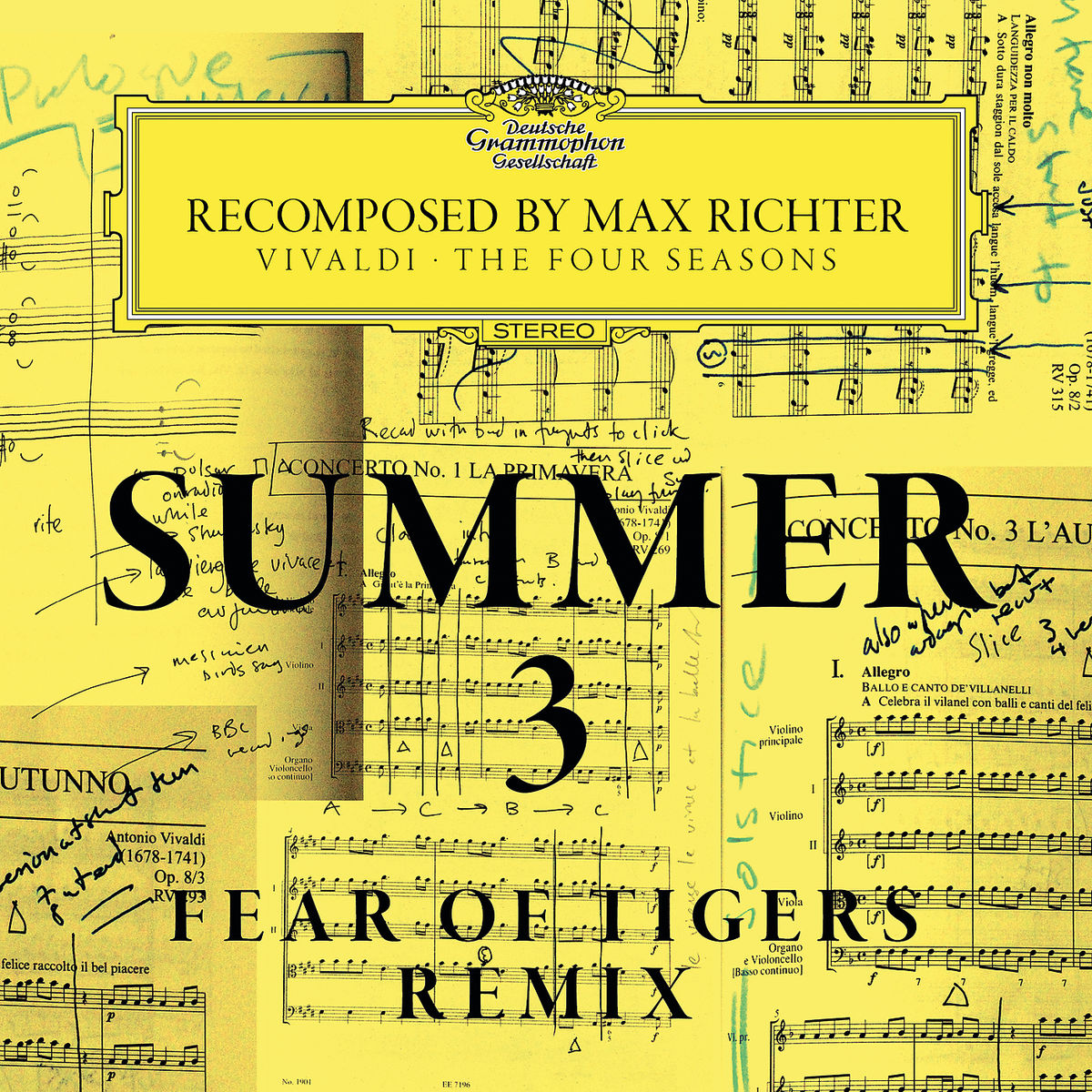Recomposed by MAX RICHTER – Vivaldi – “The Four Seasons”
Recomposed by Max Richter: Vivaldi, The Four Seasons.Mehr zu Recomposed: Amazon: h. Composed in 1723, Antonio Vivaldis Four Seasons is arguably the most familiar piece of classical music in the world, and one of the most recorded pieces of all time. In a bold move characteristic of his boundary-pushing career, Max Richter has brought the quartet. Max Richter, Soundtrack: Shutter Island. Max Richter was born on March 22, 1966 in Hamelin, Lower Saxony, West Germany. He is known for his work on Shutter Island (2010), The Leftovers (2014) and Waltz with Bashir (2008).
01. Spring 0
02. Spring 1
03. Spring3
04. Summer 1
05. Summer 2
06. Summer 3
08. Autumn 1
09. Autumn 2
10. Autumn 3
11. Winter 1
12. Winter 2
13. Winter 3
Time for classical music. I always loved The Four Seasons by VIVALDI. Maybe because they remind me of my childhood, sind this was one of the vinyls my grand-grand-parents used to listen – a lot. They are gone, but the Seasons remained. Now MAX RICHTER recomposed VIVALDI’s The Four Season and to be honest: this is the release I was most looking forward to this year. Yes, MAX RICHTER‘s Recomposed – neither YEASAYER nor the PET SHOP BOYS – not even MUSE. MAX RICHTER‘s version of The Four Seasons was what I was looking forward to most. And now that I finally listen to these amazing tunes, I feel like my grand-grand-parents sit by my side, we drink coffee and have the talk of our lifes about all the things we never had the chance to talk about.
Maybe some works are so familiar that it seems almost impossible to hear them afresh, but that is what MAX RICHTER has achieved with Vivaldi “Recomposed”. This is no mere arrangement; instead MAX RICHTER has absorbed VIVALDI’s The Four Seasons into his own musical bloodstream.
“I wanted to open up the score on a note-by-note level, and working with an existing recording was like digging a mineshaft through an incredibly rich seam, discovering diamonds and not being able to pull them out. That became frustrating. I wanted to get inside the score at the level of the notes and in essence re-write it, re-composing it in a literal way.”
MAX RICHTER calculates that, in the process, he has discarded around three-quarters of VIVALDI’s original. He opens with what he describes as “a dubby cloud which I’ve called Spring 0. It functions as a sort of prelude, setting up an electronic, ambient space for the first Spring movement to step into. I’ve used electronics in several movements, subtle, almost inaudible things to do withthe bass, but I wanted certain moments to connect to the whole electronic universe that is so much part of our musical language today.” Other resonances are no less unexpected: MAX RICHTER describes part of the first movement of his Summer as:
“heavy music for the orchestra. It’s relentless pulsed music, which is a quality that contemporary dance music has; and perhaps I was also thinking about John Bonham’s drumming. Then, in the second movement of Autumn I asked the harpsichordist Raphael Alpermann to play in what is a rather old-fashioned way, very regularly, rather like a ticking clock. That was partly because I didn’t want the harpsichord part to be attention-seeking, but also because that style connects to various pop records from the 1970s where the harpsichord or Clavinet was featured, including various Beach Boys albums and the Beatles’ Abbey Road.”
Clearly, MAX RICHTER has brought his own frame of reference to the project. As he says,
“Vivaldi’s music is made of regular patterns, and that connects with post-minimalism, which is one strand in the music that I write. That felt like a natural link, but even so it was surprisingly difficult to navigate my way through it. At every point I had to work out how much is Vivaldi and how much is me. It was difficult but also rewarding because the raw material is so fascinating.”
Just as MAX RICHTER’s Seasons plays tricks with the way we hear VIVALDI’s original, so it also asks questions of the soloist, DANIEL HOPE.

“Violinists have Vivaldi’s The Four Seasons hardwired in their brain. Daniel is likely to play the original I don’t know how many times in a year, and for him to have my parallel text going on in another part of his brain is a challenge. I think he did a wonderful job. He brought to it a deep engagement with the original, but he was fully prepared to cut this new swathe through the text.”
MAX RICHTER not only shows how to put hope and passion into music and to express it through music, he also shows that classical music can work for young people, too. Listen to the album snippets and fall in love:
––
MAX RICHTER
[one_half last=”no”]

classic
from Germany / UK

[/one_half]

[one_half last=”yes”]
Facebook | Homepage | Twitter
Max Richter Four Seasons Sheet Music
[/one_half]
